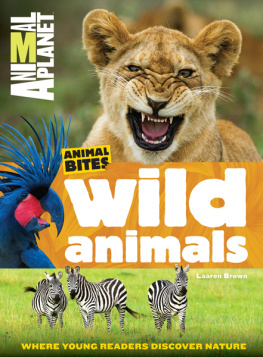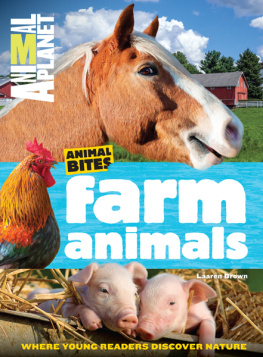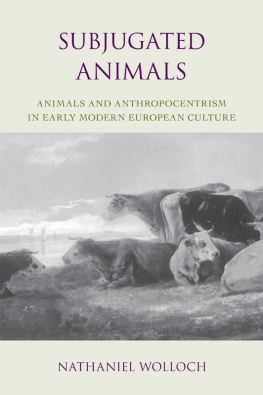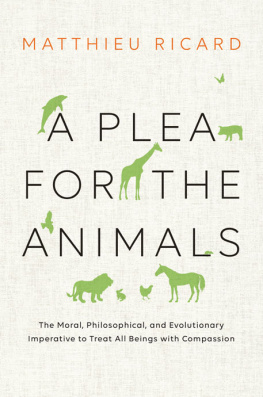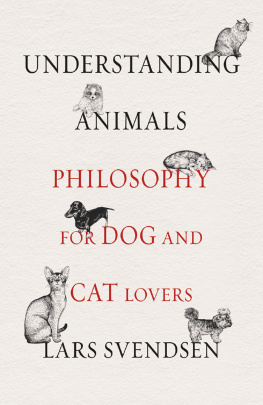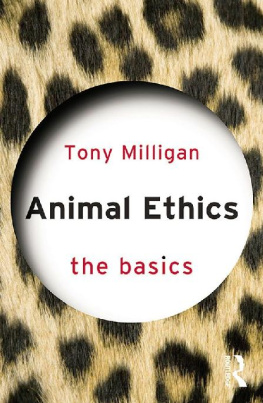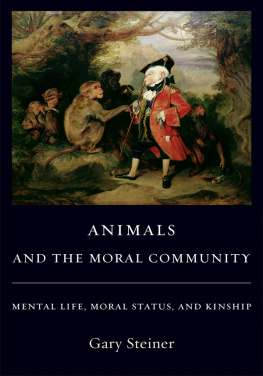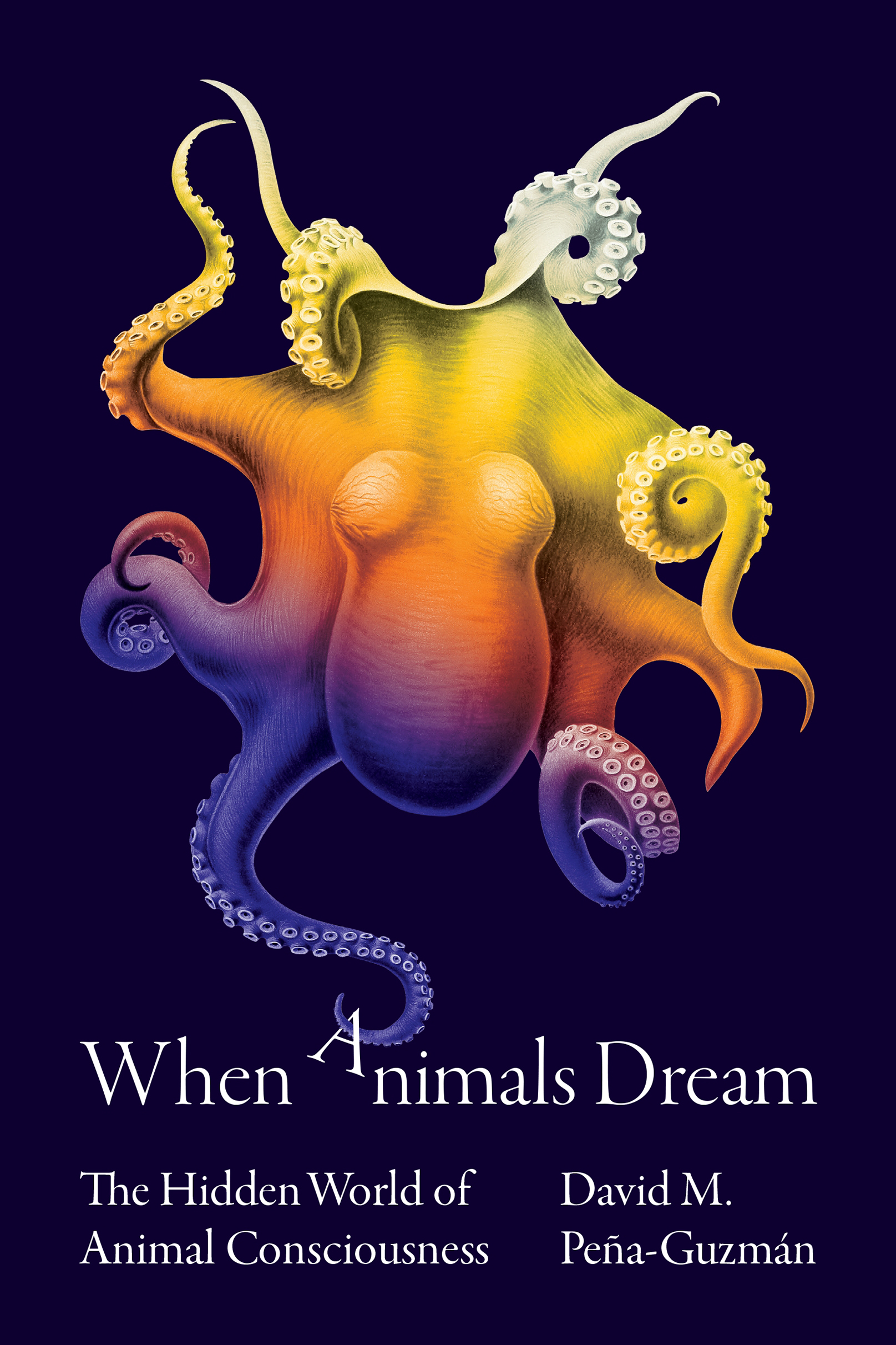WHEN ANIMALS DREAM
When Animals Dream
The Hidden World of Animal Consciousness
David M. Pea-Guzmn
PRINCETON UNIVERSITY PRESS
PRINCETON AND OXFORD
COPYRIGHT 2022 BY PRINCETON UNIVERSITY PRESS
Princeton University Press is committed to the protection of copyright and the intellectual property our authors entrust to us. Copyright promotes the progress and integrity of knowledge. Thank you for supporting free speech and the global exchange of ideas by purchasing an authorized edition of this book. If you wish to reproduce or distribute any part of it in any form, please obtain permission.
Requests for permission to reproduce material from this work should be sent to
PUBLISHED BY PRINCETON UNIVERSITY PRESS
41 William Street, Princeton, New Jersey 08540
99 Banbury Road, Oxford OX2 6JX
press.princeton.edu
All Rights Reserved
Library of Congress Cataloging-in-Publication Data
Names: Pea-Guzmn, David M., author.
Title: When animals dream : the hidden world of animal consciousness / David M. Pea-Guzmn.
Description: Princeton : Princeton University Press, [2022] | Includes bibliographical references and index.
Identifiers: LCCN 2021050401 | ISBN 9780691220093 (hardback) | ISBN 9780691220109 (ebook)
Subjects: LCSH: Consciousness in animals. | Animal rightsMoral and ethical aspects. | BISAC: PHILOSOPHY / Ethics & Moral Philosophy | SCIENCE / Life Sciences / Zoology / Ethology (Animal Behavior)
Classification: LCC QL785.25 .P46 2022 | DDC 156/.3dc23/eng/20211208
LC record available at https://lccn.loc.gov/2021050401
Version 1.0
British Library Cataloging-in-Publication Data is available
Editorial: Matt Rohal
Production Editorial: Ali Parrington
Jacket and Text Design: Chris Ferrante
Production: Erin Suydam
Publicity: Matthew Taylor & Carmen Jimenez
Copyeditor: Michele Rosen
Jacket art: Muusoctopus levis, Enteroctopodidae. Plate LXXIX from Die Cephalopoden by Carl Chun, 1915.
CONTENTS
- VII
ACKNOWLEDGMENTS
Even if only my name appears on the cover, this book is the offspring of what the feminist science scholar Karen Barad calls an agential network, which refers to complex structures whose effects are best understood as emerging from the convergence of multiple factors rather than the conscious intent of any one individual. In these networks, agency is decentralized and distributed such that even the most centrally located of nodes can never claim to be more than thata node, one among many.
I want to express my gratitude to the many nodes that have made this book possible, beginning with two people who, without their knowledge, put me on the path that would culminate in me writing these words. The first is Tanya Augsburg, whose invitation to speak at the 2018 meeting of The Animal Union marked my first public mention of my interest in the nightly experiences of other specieseven if, at the time, this interest was little more than a nebulous idea in the back of my mind. The second is Marjolein Oele, who invited me to give a talk at the University of San Francisco a few weeks later, in April 2018. I used this opportunity to dig more seriously into the science and philosophy of dreaming and sculpt my still ill-defined interest into something resembling a coherent philosophical thesis. This talk was well received by students and faculty alike, which is how I started toying with the idea of writing a book.
Having never done such a thing, however, the thought filled me with dread and made me ooze more insecurities than I care to admitabout my writing style, about my authorial voice, about my research skills, and, of course, about being found out as the impostor that I obviously was. Fear grabbed hold of me, and I decided to simply let the project fall by the wayside.
It was Rabih Hage who changed my mind and convinced me not to flee from the challenge. It was him who, with the skill of a seasoned therapist, assuaged my fears and encouraged me to write, even when I got my first real taste of writers block. It was also him who, with the generosity of a partner but the rigor of an expert, answered all my questions about neuroscience while pressing me with tough questions of his own about the philosophical use I intended to make of it. Sadly, this kindness backfired on him since it was him, too, who endured more rants about animals and their dreams in a single year than anyone should in an entire lifetimea suffering he bore with the patience of a saint. Throughout this process, he has been it all: my lover, my friend, my interlocutor, my editor, my confidant, my critic. This book has been made better by him, as have I. I dedicate this book to him, my partner in all things.
Writing can be an unbearably lonely activity, and most of the writing for this book was done under conditions of intense isolation: during confinement in Paris, France, in 2020. These were difficult times that I braved by holding on for dear life to my partner, family, and friends. My daily interactions with my partner anchored and sustained me. My phone calls with my mother, my brother, and my extended family in Mexico drew me out of myself and gave me perspective. My friendships renewed and restored me.
Many of these friendships directly aided and abetted in the writing of this book. Jessica Locke, Osman Nemli, and I formed a writing accountability group that met weekly during the pandemic. I benefitted tremendously from these encounters, which gave me structure, kept me on track, and kept me honest. I thank both for their constructive and critical feedback on various chapters. I also thank Rebecca Longtin, Joel M. Reynolds, Alex Feldman, Michael Sano, and Deborah Goldgaber, all of whom also lent their support. Their observations, critiques, and recommendations had a meaningful impact on my thinking and writing. Special thanks to Rebekah F. Spera, who put together the books index and edited the manuscript from top to bottom, saving readers from some of my less honorable writing habits along the way.
I also would like to thank the members of two scholarly communities at San Francisco State University that helped me process my ideas in a welcoming and collaborative environment: the Historicity of Consciousness reading group that I co-founded with Arezoo Islami, and the STS HUB run by Laura Mamo, Martha Kenney, and Martha Lincoln. Also deserving of mention are my colleagues in the School of Humanities and Liberal Studies: Cristina Ruotolo, Tanya Augsburg, Jose Acacio de Barros, Denise Battista, Sean Connelly, Karen Coopman, Brad Erickson, Mariana Ferreira, Judith Fraschella, Laura Garcia-Moreno, Logan Hennessy, George Leonard, Sarah Marinelli, Marie McNaughton, Peter Richardson, Steve Savage, Mary Scott, Nick Sousanis, Christopher Sterba, Shawn Taylor, Rob Thomas, and Stacey Zupan. I could not have finished this book without the material support of the George and Judy Marcus Fund for Excellence in the Liberal Arts, which financed my sabbatical leave in the spring of 2020.
Finally, I take my hat off to the very competent team at Princeton University Press. Matt Rohal has been an efficient, wonderful, and caring editor who believed in this project even when I still harbored serious doubts about its viability. He saw its potential and nudged me to make it accessible to a general audience, something that doesnt come naturally to people in my line of work (academic philosophy). Michele Rosen proved an excellent copyeditor whose eagle eye for detail improved the manuscript greatly. Ali Parrington saw the manuscript through copyediting and the successive production stages, ensuring that all the deadlines were met by all the relevant nodes. Chris Ferrante designed the stunning cover, while Emma Burns took charge of the in-chapter illustrations under the coordination of Dimitri Karetnikov. Their artistic talent has added an entire dimension of meaning to the book for which I take no credit.


